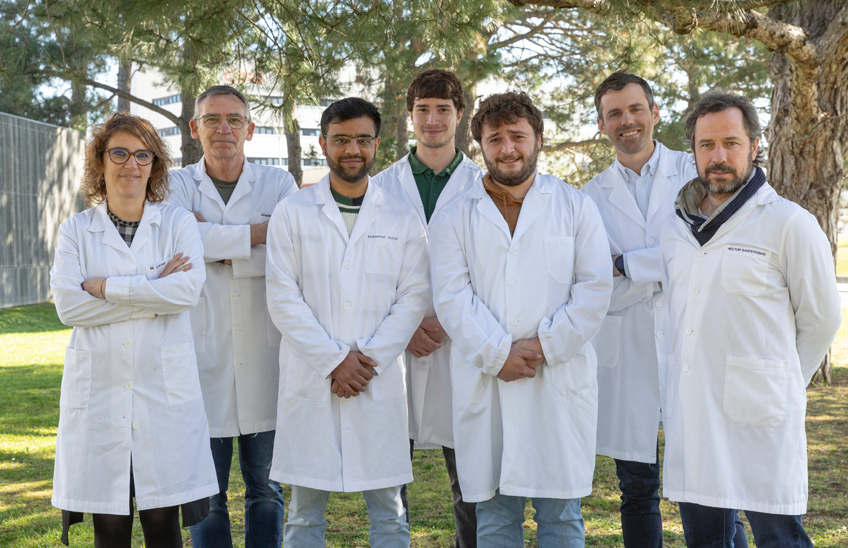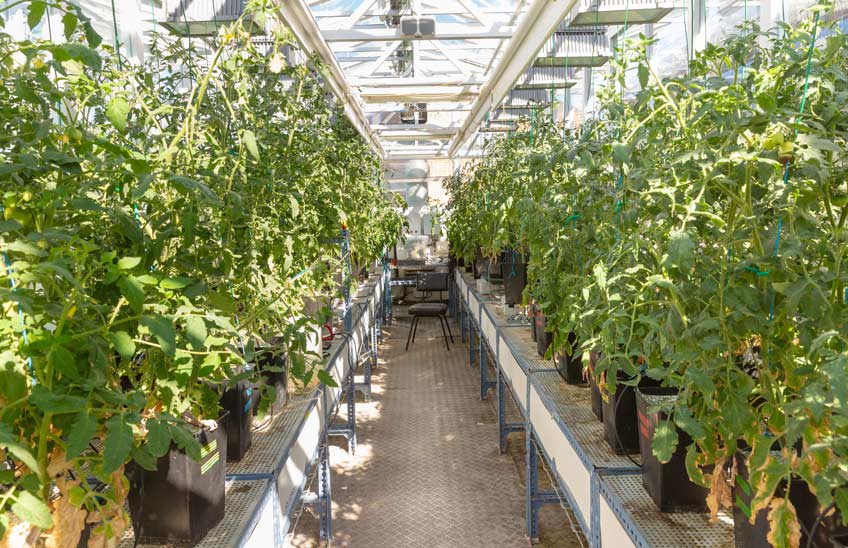RESICLIME: project to assess the impact of climate change on Mediterranean crops
The University's Biodiversity and Environment Institute (BIOMA) will analyze the effect of climate change on local and commercial varieties of tomato and bean to observe their resilience.

22 | 03 | 2024
The rise in temperatures caused by climate change is already evident at the global level. However, in areas with a Mediterranean climate this rise is even more pronounced B, and is accompanied by a reduction in water availability , according to Johann Martinez-Lüscher, researcher of the Biodiversity and Environment Institute (BIOMA) of the University of Navarra.
In the framework of this status, Johann has launched the project RESICLIME, which will assess how these conditions may affect our ability to produce food. By observing local and commercial varieties of tomato and bean, the resilience of each of them to these changes will be analyzed, and may provide data of interest to select the best adapted varieties.
"Thanks to partnership of the germplasm bank of horticultural varieties, we have chosen 3 varieties from Navarra, such as the Tía Puri (Corazón de Buey) tomato from Bera, the Feo from Tudela, and the Bombilla from Buñuel. Although these varieties are somewhat tolerant to drought, their production can be affected by higher temperatures or drought".
Once the local and commercial varieties have been chosen, their seeds will be germinated under different temperature and irrigation conditions, so that the results can shed light on the future of a sector as affected by climate change as agriculture.
According to Martínez-Lüscher, this project has a wide audience, affecting sectors such as farmers, local producers, links in the food chain, etc. In addition, it seeks to address a problem with a direct impact on society, since the results may have implications for the quality or price of these products.

"We are seeing how the price of everything is increasing, but especially fresh produce, and this is not having an impact on farmers' margins. Climate change will aggravate this status and the lack of supply can greatly affect us as consumers and our food".
This project, which will run for six quarters, has a budget of 58,650 eurosbudget funded by Next Generation EU and managed by the EATEX Food Hub. The work team is composed of Dr. Johann Martínez-Lüscher, as the main researcher , Dr. Juan José Irigoyen, and other collaborators such as Mohammad Abdullah, Héctor Santesteban, Julen Muguiro, Carlos Guembe, Amadeo Urdiain and Mónica Oyarzun.

